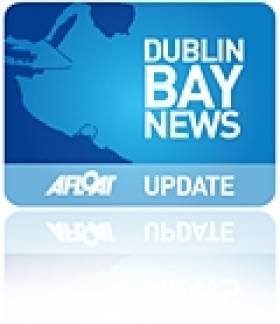Displaying items by tag: City of Dublin Steam Packet Company
Portrait of R.M.S. Leinster Survivor to be Unveiled
#DUBLIN BAY NEWS-Tom Connolly, a survivor from R.M.S. Leinster which was torpedoed off the Kish Bank in 1918, will be remembered when his portrait is unveiled on 31 December.
The unveiling is to take place in the Dun Laoghaire Club, 1 Eblana Avenue, where live music will be the order of the night, starting at 8.30pm. Tickets costs €10 each and can be purchased from the club bar or Costello Jewellers on Cumberland Avenue. Proceeds will be used to provide wheel-chair access to the club.
R.M.S. Leinster was operated by City of Dublin Steam Packet Company (CDSPCo) and on the day of the incident she had 771 passengers (mostly military personnel) and crew on board. Of those 22 were postal sorters from the Dublin Post Office, working in the ships on postal sorting room. The prefix of the vessel, R.M.S. stood for Royal Mail Steamer.
Officially 501 people died, making it both the greatest ever loss of life in the Irish Sea and the highest ever casualty rate on an Irish-owned vessel, though research to date has revealed the names of 529 casualties. To read more click HERE.
Connolly was also a member of the Dun Laoghaire Club and he founded Ireland's first supermarket in Patrick Street, Dun Laoghaire. A model of R.M.S. Leinster was displayed in his supermarket over many years. The model is now in the town's National Maritime Museum of Ireland which is due to re-open in Easter next year, for further information www.mariner.ie





























































